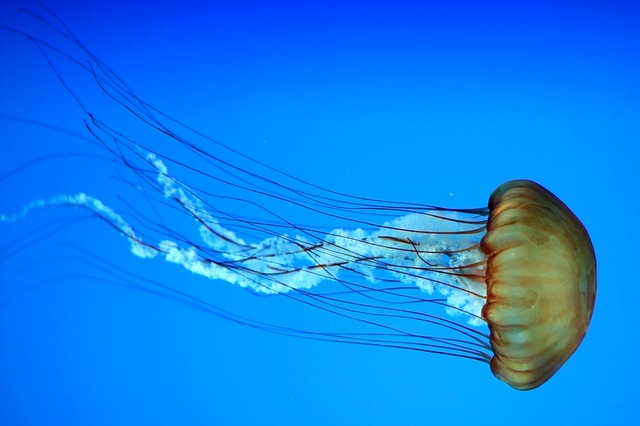Jellyfish Facts
Below are some of the facts about Jellyfish:
- One of the primitive organisms on earth is the jellyfish, which has been surviving and reproducing generations after generations from before the time dinosaurs existed until today. These invertebrate organisms of the phylum Cnidaria stays in the oceans. They have a jelly like body, hence they got named so.
- In the wild open waters, jellyfishes survive for a year in average. They can be 2cm to 2 m in length, and may weigh up to 2 kg. Their highest speed of traveling is 8 km/hr.
- Jellyfishes feed on shrimps, fishes, crabs, small plants, and also on other smaller jellyfishes. They are found in all the oceans of the earth, and they can dwell in both cold and warm waters.
- Jellyfishes are seen in various colors. Some are transparent and clear, some are translucent, and some have colors like purple, blue, yellow and pink.
- Jellyfishes have a strange power. They are bioluminescent, which means they can produce light of their own. That is why some jellyfishes can be seen illuminated in the dark ocean waters. This light helps them distract attackers and also helps in attracting prey.
- Jellyfishes have no eyes, brain, and heart. Their body consists of only a sac like main body with small or tiny tentacles. Each tentacle has lines of stinging cells.
- The stinging cells in a jellyfish helps it to hunt its prey or stun a prey or predator. They sting with the tentacles to stun and paralyze a prey, and then gobbles it up.
- The mouth is the ingesting as well as excretory organ of the jellyfish. This is the single orifice in its body through which it eats food and also excretes waste. The mouth also is the propeller of the jellyfish. To propel while swimming, the jellyfish squirts forcefully a jet of water from its mouth and moves ahead.
- The digestion of a jellyfish is very fast so that it does not retain food for long in it small body and gets heavy. When it digests fast, it gets lighter to float in water.
- Jellyfishes are eaten by other sea animals. The sea turtle is the biggest predator of jellyfishes which often eats jellyfishes often and almost daily.
- Jellyfish stings can be quite irritating and painful for humans, and in some cases may be too toxic and fatal. They don’t attack humans on purpose. They sting as a reaction to stimuli when humans accidentally touch them.
